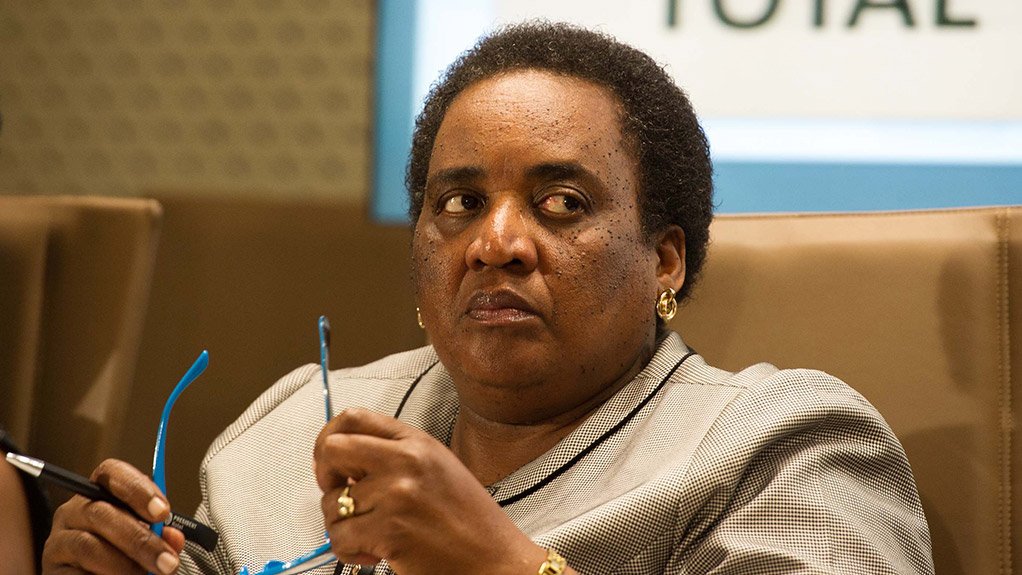/ MEDIA STATEMENT / The content on this page is not written by Polity.org.za, but is supplied by third parties. This content does not constitute news reporting by Polity.org.za.
Minister of Labour Mildred Oliphant today said she would not allow a review of South Africa’s labour relations laws in order to introduce flexibility in the hiring and firing of workers.
Speaking at the 3rd Southern African Metals and Engineering Indaba in Sandton, Ms Oliphant commented on the country’s labour market policies. “Most workers consider the post-apartheid labour dispensation as their revolutionary victory, while capital is calling for flexibility. There is an obsession that South Africa’s labour market policies impede job creation,” she said.
Ms Oliphant spoke against suggestions that the country’s labour relations legislation should be amended in order to accommodate flexibility in respect of firing and hiring. “Let me say this from the onset – it is not happening. As long as I am still deployed at Minister of Labour, I will not allow that particular clause,” she said.
Meanwhile, several speakers at the conference debated the future of centralised collective bargaining, with most warning against the dangers of the move. This comes amid resistance in the past to the extension of collective agreements to non-parties.
National Union of Metalworkers of South Africa (Numsa) General Secretary Irvin Jim warned companies about dire consequences if centralised collective bargaining collapsed. “It will be you and the workers in the workplace. Employers came running to collective bargaining because workers were bargaining every day. If you collapse this, that is where it will go,” Mr Jim said.
SEIFSA Operations Director Lucio Trentini said collapsing the current centralised collective bargaining system without coming up with an acceptable, well-thought-out and viable alternative model acceptable to all stakeholders would not address the symptoms underlying the root causes plaguing the country’s labour relations environment.
“More directly, an immediate collapsing of the current centralised collective bargaining model will only result in instability, uncertainty and industrial relations chaos,” Mr Trentini said.
Bowmans Gilfillan partner Graham Damant said there had been systematic attacks on centralised collective bargaining in the past few years. “Virtually every extension of a collective agreement to non-parties by bargaining councils get attacked by somebody. The various extensions of the metals and engineering industry have been attacked by the National Employers Association of South Africa (NEASA),” Mr Damant said.
He said the extension of the 2011 and 2014 wage agreements were set aside on technical grounds. “NEASA’s attacks so far have been technical, based on procedure by which these agreements get promulgated and extended. NEASA has indicated that it intends to resist the intention of the 2017 wage agreement by all means available to it. We can anticipate a lot of legal battles over the latest agreement,” he said, referring to last month's three-year wage agreement between SEIFSA and five unions.
“Collective bargaining without the ability to extend the agreement is collective begging. It is not going to serve its own purpose,” Department of Labour Chief Director Thembinkosi Mkalipi said.
Mkalipi said the growing number of employer organisation threatened collective bargaining. He said this had led to a fight for control by the employer bodies. “The survival of centralised collective bargaining is in the hands of employers and unions,” he said.
Today’s sessions included the commercial benefits of South Africa’s membership of BRICS, the effect of steel import tariffs on the South African economy, the nature of the relationship between small businesses and big businesses in manufacturing, South Africa’s junk credit rating and an assessment of the National Development Plan (NDP).
Issued by SEIFSA
EMAIL THIS ARTICLE SAVE THIS ARTICLE ARTICLE ENQUIRY
To subscribe email subscriptions@creamermedia.co.za or click here
To advertise email advertising@creamermedia.co.za or click here











